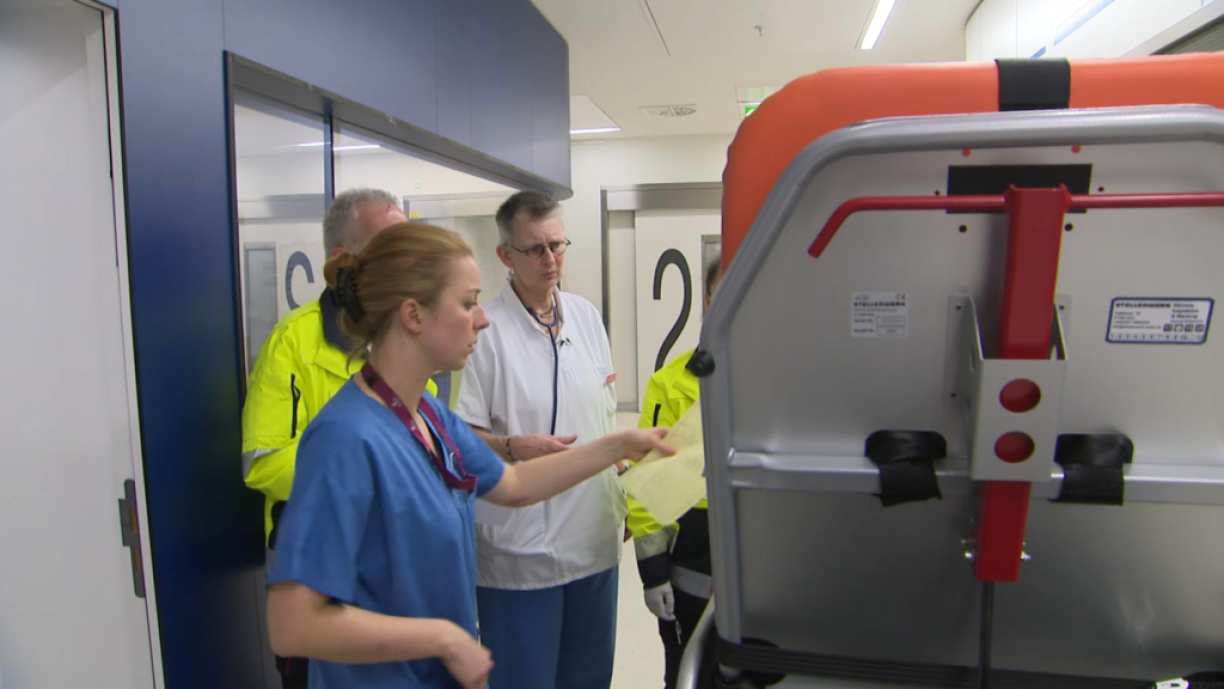
The Grand Ducal Fire and Rescue Corps (CGDIS) is currently evaluating a proposal to reform the membership rules for its Emergency Medical Assistance Teams (SAMU), a move that has revealed a professional rift between emergency room doctors and anaesthetist-resuscitators.
The push for change, highlighted in recent statements from the Independent Luxembourg Trade Union Confederation (OGBL) and the Luxembourg Confederation of Christian Trade Unions (LCGB), comes from A&E doctors who are currently largely excluded from SAMU duties in Luxembourg. Existing regulations permit only doctors and nurses specialised in anaesthesia-resuscitation to participate, with few exceptions. This means A&E doctors qualified for international SAMU missions are barred from doing the same work domestically.
The proposed reform would tie SAMU eligibility to specific skills rather than solely to the anaesthesia-resuscitation specialisation. This approach is viewed critically by anaesthetists, who argue their unique expertise is vital for pre-hospital emergency care.
Dr Philippe Welter, President of the Circle of Anaesthetists-Resuscitators, stated that the daily routine of his specialisation guarantees the best-possible patient intake. “This expertise is what we want to have out in the field”, Dr Welter said, explaining that anaesthetists’ work involves continuous monitoring of critically ill patients, administering anaesthesia, and managing acute organ failure.
He argued that A&E doctors in Luxembourg lack this specific hands-on experience, as they typically delegate such critical care to anaesthetists within the hospital. “When they have a problem in A&E, they call us, but we don’t call them”, he noted, stressing that anaesthetists are often the “last resort” for patient care. “Out on the street [...] they can’t call anyone – because there’s no one there”, he warned.
The defence of the current SAMU structure extends beyond doctors to include specialised nurses. Dr Welter described the partnership between an anaesthetist and an anaesthetic nurse as a team that works “better than a marriage”, a sentiment echoed by their nursing colleagues.
Jeff Scheer, President of the Luxembourg Association of Anaesthetic and Resuscitation Nurses (ALIAR), reinforced this view. He emphasised that the anaesthetist-anaesthetic nurse tandem has functioned effectively since 1989. Scheer criticised the proposal to alter this dynamic, noting that their constant collaboration in hospitals allows them to assist patients in the field seamlessly. “Without much discussion, without wasting time”, he stated, arguing it is “very important to maintain this binome as it is.”
Both groups contend there is no justification for changing a framework that is not suffering from a shortage of personnel. Scheer specified that the opportunity to work with SAMU is a key incentive for nurses to specialise in anaesthesia-resuscitation. Dr Welter confirmed that, unlike in A&E, their specialisation faces no difficulties in recruiting new members.
Unsurprisingly, A&E doctors offer a different perspective. They argue that the necessary skills for handling serious emergencies are not exclusive to those holding an anaesthesist diploma.
Dr Anne-Sophie Ries, an A&E doctor, contends that their training has evolved significantly and specifically prepares them for critical emergencies. “I know what I’m doing”, Dr Ries said, highlighting her “rigorous” training and pointing out that A&E doctors also manage severely ill patients within the hospital. For her, the issue is about demonstrated skills, not a specific diploma. Dr Ries, who also works for Luxembourg Air Rescue (LAR), pointed out that the teams at LAR are not just made up of anaesthetists or anaesthetic nurses and that communication works “very well.”
This debate touches on a critical issue for Luxembourg’s healthcare system: a shortage of A&E doctors. Dr Ries suggested that one reason professionals do not return to work in the Grand Duchy is because they are barred from SAMU missions. Opening these roles to A&E doctors, she argued, could be a key factor in making the profession more attractive in Luxembourg again.